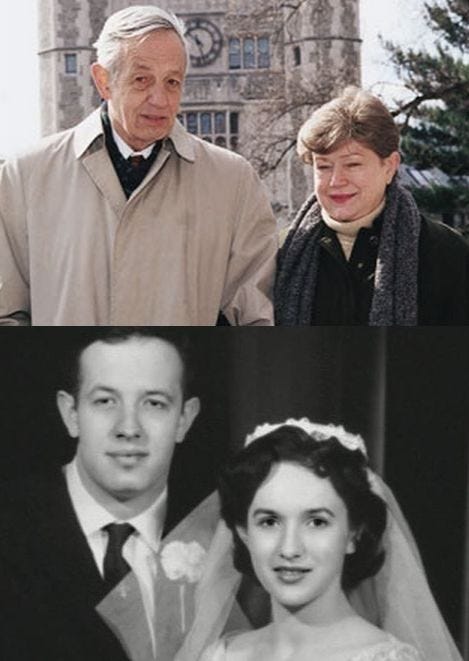Have you heard about John Nash?
Or rather, Professor John Nash?
John Nash was an American mathematician who won the Nobel Prize in 1994. He received the National Medal of Science in 1999, the Abel Prize in Mathematics in 2015, and the John von Neumann Prize in the same year. His colleagues describe him in brilliant words. John Milnor said, "He had a very unusual mind, very original and very powerful."
From the beginning of his educational journey, John's brilliance shone through. From a young age, he showed exceptional mathematical ability. He exceeded grade expectations in high school and earned a scholarship at Carnegie Institute of Technology. At just 26 years old, John had completed his PhD at Princeton University.
Before he was 30, he was already in faculty positions at MIT and Princeton. Albert Einstein wrote a recommendation letter for him. He had intellectual exchanges with John von Neumann and worked with Marvin Minsky.
But you know what? John Nash would have become one of those “would have been” of history, except for one thing. Alicia Nash. In 1959, at the age of just 29, John Nash was diagnosed with schizophrenia. It almost ruined his life. Oh no, it did. His promising career was brought to a complete stop.
What is Schizophrenia? Schizophrenia is a complex mental illness affecting how someone perceives reality. It's characterized by delusions (fixed, unrealistic beliefs), hallucinations (seeing or hearing things that aren't there), and disorganized thinking and behavior. While the exact cause is unknown, it likely involves both genetic and environmental factors. Though incurable, schizophrenia can be successfully managed with medication, therapy, and strong social support, allowing individuals to live fulfilling lives.
This brilliant mind became a laughingstock. Most of those who hailed him forgot about him, his friends moved on, his professional employers found others to do his work, and nearly everyone gave up on him. Alicia Nash was the one person who refused to give up on her Hubby. She refused to accept that it was hopeless. With patient care and attention, John recovered and lived long enough to receive all those awards. Her care for him is immortalized in the movie A Beautiful Mind, which I highly recommend, but if you are reading this, I recommend the book more. A Beautiful Mind by Sylvia Nasar. It offers more details than the movie.
Even when Alicia could not understand him, she stayed. Even when he disgraced her, she persisted. Even when he chose to divorce her, she stayed.
Alicia was devoted to John ultimately. Of course, it was a struggle. Serious struggle. But if you asked Alicia whether she was happy, she would say yes. How can she derive happiness from this? Because happiness comes from making others happy.
There are countless books out there written on the subject of happiness. So many of them teach that we can only be happy by looking inwards or to fulfill our desires. You can't be more wrong. Happiness comes from devoting our lives to the happiness of others. It comes from pouring ourselves into the service of those we love. It comes from doing to others what will make them happy.
As we celebrate Valentine's Day, I realized it is worth sharing that you should stop searching for happiness within yourself. Look around you. Who are those you genuinely love? Make it your duty to make them happy, and I assure you, you will be happy yourself. Most times, this will require that you discomfort yourself; it may require that you make sacrifices, but I assure you, if happiness is the goal, you will find it.
Happy Valentine’s Day!





"Happiness comes from devoting our lives to the happiness of others. It comes from pouring ourselves into the service of those we love. It comes from doing to others what will make them happy. "
"happiness comes from making others happy."